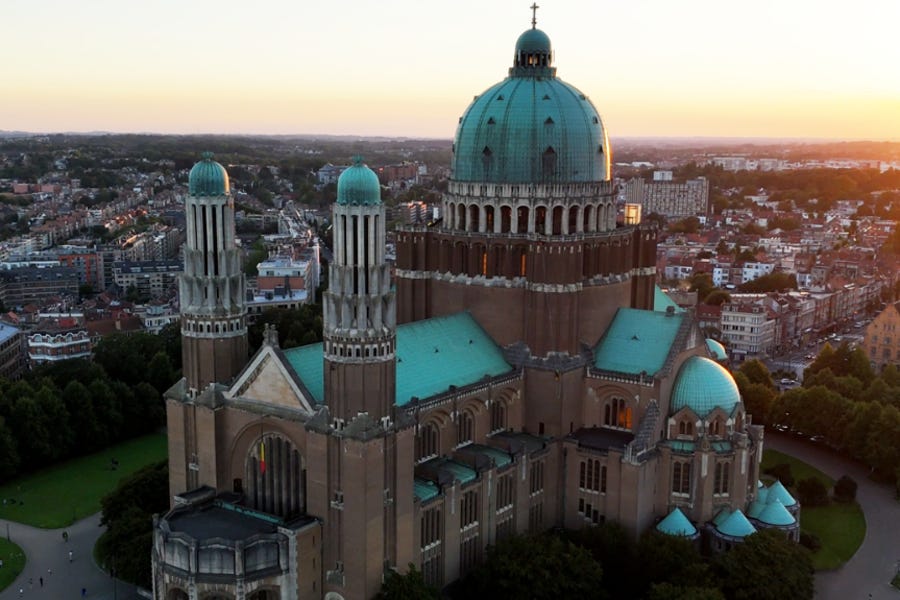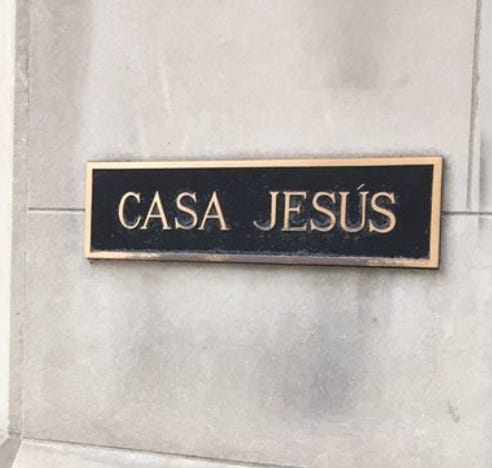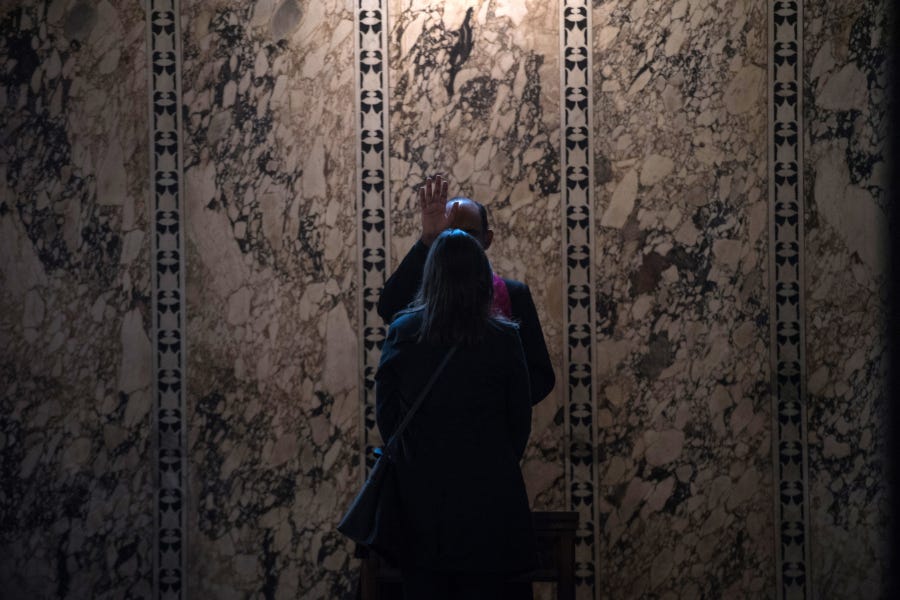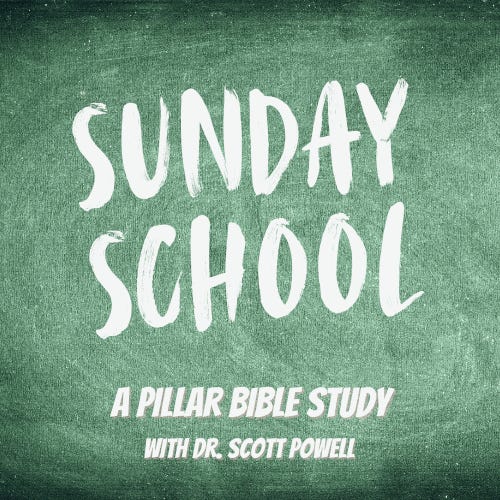Belgium’s bishops unveiled their new point man on clerical abuse this week, days before Pope Francis begins a four-day visit to the country.

Archbishop Luc Terlinden, the 55-year-old Archbishop of Mechelen-Brussels, succeeds Bishop Johan Bonny, the 69-year-old Bishop of Antwerp, who stepped down in July, citing an excessive workload that he said was taking a toll on his health.
Bonny had served in the role for the past 15 years, a time of great upheaval in the Belgian Church amid clerical abuse and cover-up scandals.
The last papal visit to Belgium was in 1995, when Pope John Paul II beatified Fr. Damien De Veuster, the Apostle of Molokai. That was long before the abuse crisis overwhelmed the country, tarnishing a generation of Catholic leaders, and accelerating the local Church’s already steep post-Vatican II decline.
The motto for Pope Francis’ Sept. 26-29 visit is “En route, avec Espérance” (“On the way, with Hope”) — a notably forward-looking message. But will the trip’s organizers be able to keep the focus on the Church’s future, or will it inevitably shift back to its troubled past?
‘Nothing will happen’
As recently as January, a Belgian Church official expressed concern that the papal visit would be marred by the abuse crisis.
Referring to the case of Roger Vangheluwe, who stepped down as Bishop of Bruges in 2010 after admitting to abusing a nephew, bishops’ conference general secretary Bruno Spriet said: “It will be difficult for Pope Francis to make a peaceful visit to our country in September until there is clarity on this matter.”
At that point, Vangheluwe was still a bishop, living in retirement at a French monastery. But in March — almost 14 years after his abuse admission — the 87-year-old was laicized, resolving a scandal that would have cast a long shadow over the papal visit.
In a further acknowledgment of the Belgian public’s anger over the abuse crisis, Pope Francis will meet with 15 victims during his trip.
But even this has been a source of controversy. Fr. Rik Devillé, an abuse survivor advocate, accused the meeting’s organizers of a bias toward what he called “Church-friendly” victims — a claim they rejected.
Devillé later suggested the meeting would be little more than a PR exercise.
“The pope will be nice, shake hands, hand out a paternoster, and then go back to Rome and nothing will happen,” he suggested.
Campus criticisms
The ostensible reason for the papal visit is to mark the 600th anniversary of the University of Leuven, embodied today in the Dutch-speaking KU Leuven and the French-speaking UCLouvain.
But the abuse crisis is even impinging on this celebratory event. In a Sept. 17 op-ed, KU Leuven professor Bart Maddens suggested his university was downplaying the pope’s Sept. 27 campus visit.
“Apparently, the pope was invited before the resurgence of the pedophilia scandals following the VRT documentary ‘Godforsaken,’ and many are now somewhat annoyed by it,” he wrote, referring to a documentary series that provoked a massive outcry in Belgium when it was broadcast in September 2023.
KU Leuven authorities denied they were unenthusiastic about the pope’s visit, but an article about the trip posted on its website Sept. 20 referred to abuse five times.
The article, entitled “The papal visit and KU Leuven’s theological faculty,” said: “Theologians have not only strongly condemned the abuse but also conducted in-depth analyses of underlying factors that made it possible, such as abuse of power, the culture of secrecy, the misuse of terms such as ‘forgiveness,’ or problematic conceptions of sexuality. These insights contribute to reforms within the Church and to a broader social awareness of these issues.”
Irish precedent
The debate surrounding the abuse crisis could pause once the charismatic Pope Francis touches down on Belgian soil.
The local media will be racing to keep up with him as he moves from a meeting with the King of the Belgians, to KU Leuven, to Brussels’ Basilica of the Sacred Heart, to UCLouvain, and King Baudouin Stadium.
But if public outrage is sufficiently high, papal visits can be overshadowed by abuse scandals. The pope faced protests, for example, during his 2018 visit to Ireland, another former Catholic bastion in Europe devastated by clerical abuse.
To avoid a repeat experience, Pope Francis will probably need to address the crisis soon after he arrives in Belgium, perhaps in his first speech, to the authorities, civil society, and the diplomatic corps.
His meeting with abuse victims will, of course, take place privately. But he will need to find ways to convey his empathy for victims at every opportunity throughout the trip.



